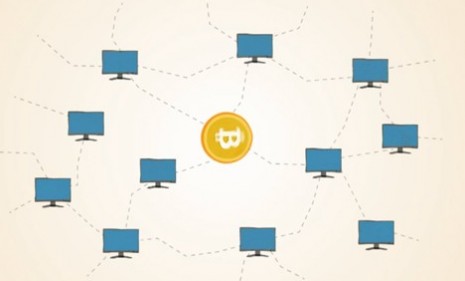Bitcoin: Is the virtual currency for online drug buys doomed?
The federal government weighs a crackdown after reports that the booming esoteric digital currency is used to buy and sell illegal drugs online

A free daily email with the biggest news stories of the day – and the best features from TheWeek.com
You are now subscribed
Your newsletter sign-up was successful
Since its creation in 2009, Bitcoin, a shadowy underground virtual currency, has primarily been used by hackers. But after reports that it's now being used to buy and sell hard drugs online, Sens. Chuck Schumer (D-N.Y.) and Joe Manchin (D-W.Va.) have called for Bitcoin to be shut down. (Watch a Reason video on Bitcoin here.) Here, a brief guide:
What is Bitcoin?
Created by an anonymous computer scientist in Japan who goes by the pseudonym Satoshi Nakamoto, Bitcoin is an online digital currency that can be used to purchase both virtual and real goods. It was first adopted by hackers as a means of bartering their services.
The Week
Escape your echo chamber. Get the facts behind the news, plus analysis from multiple perspectives.

Sign up for The Week's Free Newsletters
From our morning news briefing to a weekly Good News Newsletter, get the best of The Week delivered directly to your inbox.
From our morning news briefing to a weekly Good News Newsletter, get the best of The Week delivered directly to your inbox.
How does Bitcoin work?
Because it's a peer-to-peer currency, there's no central issuing authority to make more money or track transactions. Instead, "these tasks are managed collectively by the network." A Bitcoin's value comes solely from users agreeing to accept it in trade. It's "global, private, and untraceable," says Britain's Guardian, and "the monetary system of choice for libertarians, geeks, businesspeople, and, apparently, drug kingpins."
How do I get these Bitcoins?
There are several ways. They can be purchased using U.S. dollars or other hard currencies via third-party exchanges or local traders. You can also receive them as payment for goods or services. Or, most notably, tech-savvy users can create new Bitcoins by "mining," a complex process where individuals lend their computer and network power to the system to generate more Bitcoins. (For more on that, go here.)
A free daily email with the biggest news stories of the day – and the best features from TheWeek.com
How do you spend them?
You don't use an intermediary, like, say, PayPal. Instead, a user spending a Bitcoin cryptographically signs a statement authorizing the transfer and identifying the recipient with a crypto key. The new owner then publishes the transaction to Bitcoin's global network, providing "incontrovertible evidence that the coin has been spent," says Thomas Lowenthal at ARS Technica. This combination of encryption and an open transaction record maintains the currency's integrity, and prevents a person from spending a Bitcoin more than once — a key issue with digital currency.
Why would people want to use Bitcoin?
Unlike PayPal or credit cards, Bitcoin can't be traced. That veil of anonymity is "increasingly attractive to ordinary people who object to the vast amount of personal information that is routinely collected by online retailers," says Ruth Whippman in The Guardian. Bitcoin recently gained attention as the payment method of choice for Silk Road, an e-commerce site that allows anonymous users to buy and sell illegal drugs online. Bitcoin spokesman Donald Norman says the focus on illegal activities is off-base. "Bitcoin is going to change the world in the same way the internet did and make societies freer," he says
Is it really so anonymous?
That's a matter of contention. In response to all the Silk Road publicity, Jeff Garzik, a Bitcoin developer, noted that while users are anonymous in Bitcoin transaction logs, law enforcement officials could use "sophisticated network analysis techniques" to track them down. "Attempting major illicit transactions with Bitcoin," he says, "given existing statistical analysis techniques deployed in the field by law enforcement, is pretty damned dumb."
Is the government doing anything about it?
It's trying to. Last week, Sens. Charles Schumer (D-N.Y.) and Joe Manchin (D-W.Va.) wrote a letter to Drug Enforcement Administration chief Michele Leonhart and Attorney General Eric Holder urging a government crackdown on Bitcoin, calling it "an online form of money laundering." But, the senators might not really know what they're dealing with. "The tone of the senators' letter comes off as though they themselves don't know what entity they want to destroy or how to go about it," says Brennon Slattery at PC World. "Bitcoins, by nature and general practice, are harmless; they're merely an Internet-based alternative to traditional federal banks." Yeah, says Jerry Brito at Tech Liberation. Similar to paper money, Bitcoin is merely "a tool that can be used for good or ill."
How many people are using Bitcoin?
Hard to say. But as of May, according to Wikipedia, there were 6.2 million Bitcoins in circulation. The value of the Bitcoin has been soaring in recent weeks. On Friday's opening, a single Bitcoin was trading as high as $28.919 on the world's largest Bitcoin exchange, Mt. Gox.
Sources: ARS Technica, Bitcoin.org, Bitcoin wiki, Daily Tech, Economy Watch, Gawker, Guardian, PC World, Tech Liberation, Wall St. Journal
Editor's Note: This piece has been revised and added to since it was first published.
-
 A dreamy long weekend on the Amalfi Coast
A dreamy long weekend on the Amalfi CoastThe Week Recommends History, pasta, scenic views – this sun-drenched stretch of Italy’s southern coast has it all
-
 Can foster care overhaul stop ‘exodus’ of carers?
Can foster care overhaul stop ‘exodus’ of carers?Today’s Big Question Government announces plans to modernise ‘broken’ system and recruit more carers, but fostering remains unevenly paid and highly stressful
-
 6 exquisite homes with vast acreage
6 exquisite homes with vast acreageFeature Featuring an off-the-grid contemporary home in New Mexico and lakefront farmhouse in Massachusetts